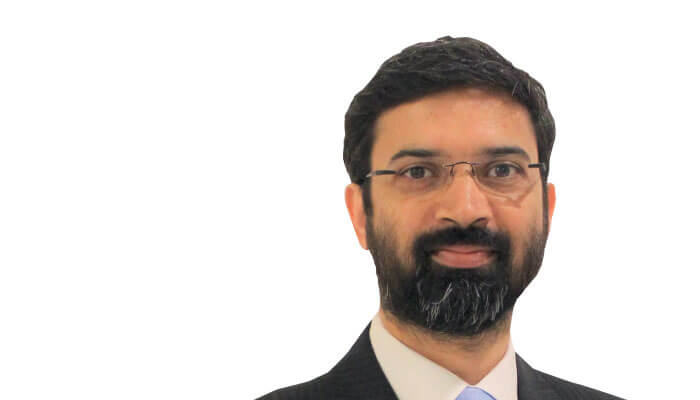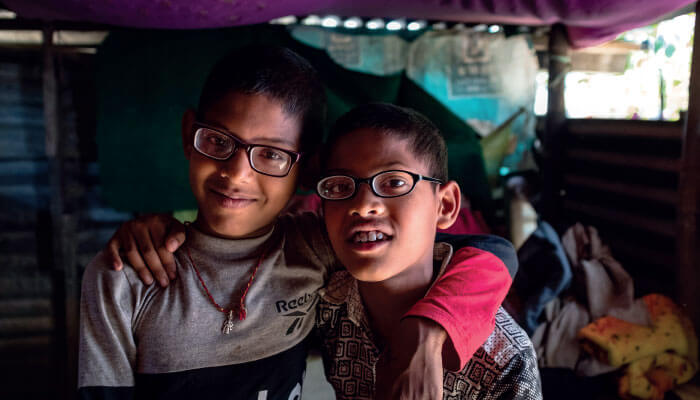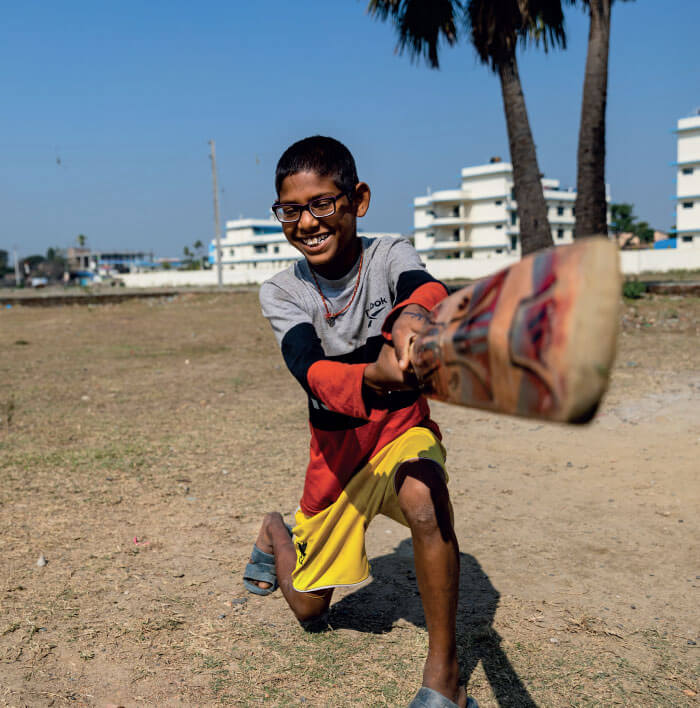
The global charity’s fundamental belief is that no one should go blind because of where they were born. Together with its network of partners, Orbis has been training local teams to fight blindness in their own communities since 1982.
In many parts of the world, children drop out of school because of avoidable sight loss, thereby compromising their future – and that of their communities. At Orbis, one of our key objectives is to stop this waste of human potential; we give children the eye care they desperately need so that they can return to school and contribute to society. And we have seen, again and again, how a simple eye exam and a pair of glasses can transform a child’s life. Now, we are building on these successes with the See My Future appeal, which invites you to help us prevent sight loss in Nepalese children. All public donations received for the appeal before June 23 this year will be matched by the UK government – thus, donors may double the impact of their gifts, in turn allowing us to double our effectiveness. Please donate now and help to save a child’s sight – and change a child’s future.
How we use your donations
All monies matched by the UK government go towards our childhood blindness project in Nepal; your donations support our sight-saving work wherever it is most needed.
- £3.50 doubled to £7 trains four Vision Ambassadors – pupils who assist with screenings and share eye health messages with peers
- £5.50 doubled to £11 provides two new pairs of glasses
- £53 doubled to £106 enables eye screening for 250 children
- £93 doubled to £186 purchases portable equipment to record screening results
£2,155 doubled to £4,310 purchases a full eye screening kit (including hand-held slit lamp, ophthalmoscope, trial lens set)
Rahul Ali, Country Director, Orbis India
As a child, Rahul Ali would accompany his father, an ophthalmologist, to “eye camps” in remote parts of Central India – an experience that inspired his own career in ophthalmology. This journey – via public health and the business world – eventually led him to Orbis, where he has been for six years. Here, he talks about Orbis’ work in India.
Orbis’s initial efforts in India focused on building our capacity for pediatric eye care from the ground up – a mammoth challenge. To assist in this endeavor, we launched the India Childhood Blindness Initiative (ICBI) in 2002. The main ICBI objectives were two-fold: i) identification of tertiary level eye hospitals where Children’s Eye Centers (CECs) could be established; and ii) identification of the infrastructure and human resource requirements that should be addressed, if avoidable childhood blindness were to be eliminated in India.
The success of the ICBI initiative is reflected in the number of CECs established by Orbis India; with 33 CECs in 17 states, it is the largest national children’s eye center network in the world. ICBI has also made excellent progress in addressing human resource needs: to date, three Indian tertiary level pediatric facilities have been developed into pediatric ophthalmology learning and training centers. In addition, Orbis continues to support the professional development of eye care personnel via the Flying Eye Hospital and hospital-based training courses.
More recently, in July 2016, Orbis initiated the Refractive Error Among Children (REACH) program, which aims to reduce uncorrected refractive error and associated visual impairment among school attendees. In brief, REACH teams perform school-based vision screenings, and then prescribe and provide spectacles as required. Where necessary, teams refer children to CECs for further examination. And that encapsulates the difference between REACH and most other school-based refractive error programs – rather than giving children spectacles and then forgetting them, REACH actually follows them up to monitor compliance with spectacle wear and encourage behavior that promotes eye health. In addition, REACH is raising eye health awareness in local communities through dissemination of Information, Education and Communication materials. These activities are supported by purpose-built software (REACHSoft) developed by Orbis. The REACH numbers speak for themselves: within three years, we have screened 4,575,014 children, given 136,223 prescriptions and delivered 93,773 pairs of spectacles.
It’s time to build on this success. Effective eye-care intervention in childhood is life-changing, and school-based eye health programs are critical to ensuring we identify children in need. It is imperative that we ‘REACH’ more children across Nepal – screening and treatment will help keep them in school and give them a better future. Accordingly, we’ve launched the See My Future appeal to help expand the REACH program in Nepal. The UK government’s promise to match appeal donations is very welcome – if you give now, your donation is effectively doubled! This is extremely important; to help the millions who suffer from sight loss each year, it is imperative that we extract maximum value from every donation. And remember, by helping REACH in Nepal, we are also helping children in other countries, as the Orbis model for promoting childhood eye care is replicable across borders.
Childhood myopia – it’s not cricket
Young brothers Kisan (12) and Shasant (10) were diagnosed with high myopia during an Orbis-supported school screening – in fact, their myopia was severe enough for them to meet the World Health Organisation definition of legal blindness. With new glasses, however, the boys no longer struggle with day-to-day life, and their schoolwork has markedly improved. Myopia will no longer hinder Shasant’s ambition to become a doctor, nor Kisan’s dreams of being a scientist. And Kisan can finally enjoy playing his beloved cricket!


